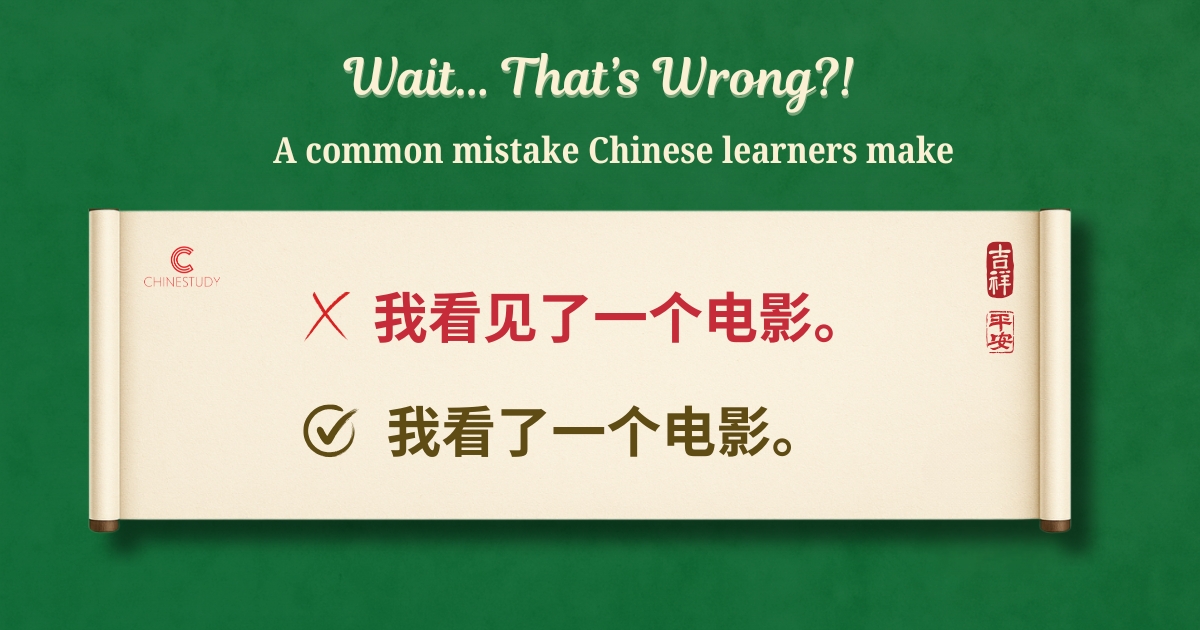😅 我看见了一个电影。Wait… That’s Wrong?!

If you said:
👉 我看见了一个电影。
(Wǒ kànjiàn le yí ge diànyǐng.)
to mean “I watched a movie,”
you’re not alone — but it’s ❌ not correct in Chinese!
Let’s see why, and how to say it the right way 👇
❌ What’s wrong?
看见 (kànjiàn) means “to catch sight of” or “to see” something — just with your eyes.
So when you say:
我看见了一个电影。
It sounds like you just happened to see a movie (maybe the poster? maybe the DVD?) — not that you watched it.
But in English, we say “I saw a movie” to mean “I watched it.”
That’s where the confusion comes from!
🛠 Let’s Fix It
Wrong sentence:
❌ 我看见了一个电影。Wǒ kànjiàn le yí ge diànyǐng.
Correct sentence:
✅ 我看了一个电影。
(Wǒ kàn le yí ge diànyǐng.)
👉 I watched a movie.
💡 Easy Tip to Remember
- Use 看 (kàn) to say you watched something.
- Use 看见 (kànjiàn) only when you just saw it — not watched it.
🎯 Interactive Practice
Correct the Sentences If Necessary:
1. ❌ 我看见了一个电视节目。
(Wǒ kànjiàn le yí ge diànshì jiémù.)
✅ Correct Answer:
- 我看了一个电视节目。
- (Wǒ kàn le yí ge diànshì jiémù.)
- 👉 I watched a TV program.
2. ❌ 昨天我看见了那部电影。
(Zuótiān wǒ kànjiàn le nà bù diànyǐng.)
✅ Correct Answer:
- 昨天我看了那部电影。
- (Zuótiān wǒ kàn le nà bù diànyǐng.)
- 👉 I watched that movie yesterday.
3. ✅ 我看见了我的朋友。
(Wǒ kànjiàn le wǒ de péngyǒu.)
👉 I saw my friend.
✔ This is correct — you saw someone with your eyes.
🚀 Final Reminder
❌ Don’t say: 我看见了一个电影
✅ Say: 我看了一个电影
- 📌 Use 看 to say you watched something.
- 📌 Use 看见 only when you just saw it — not watched it.
Oops… that’s not the only mistake we all make! 👉 Explore more here
Thank you for subscribing!
Have a great day!